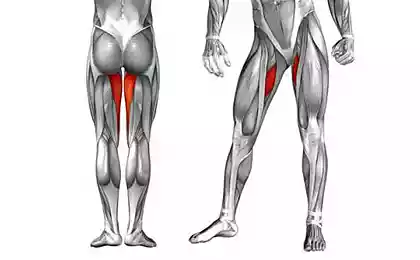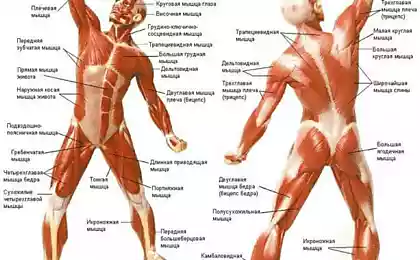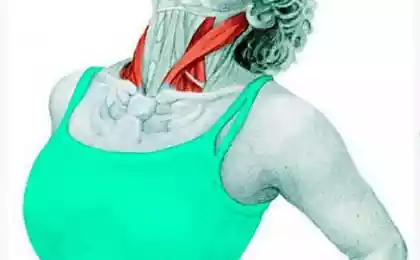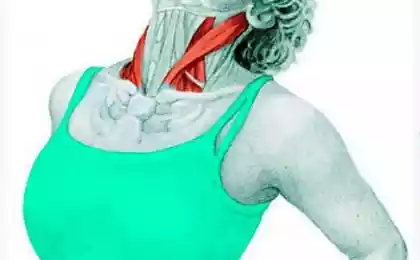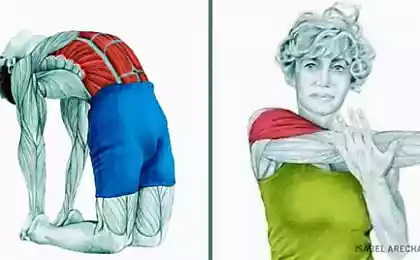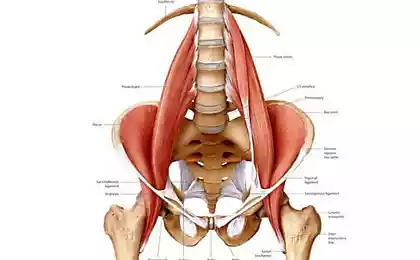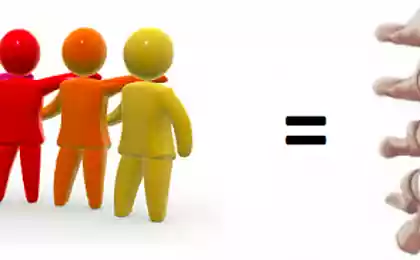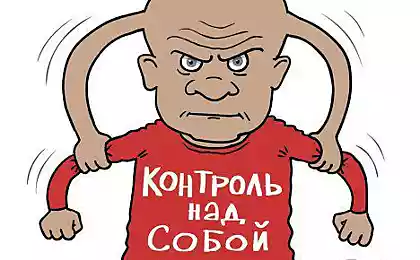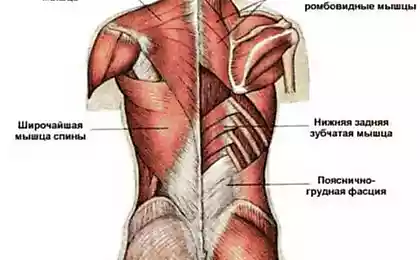730
Kelly Mcgonigal: willpower can be trained like a muscle
Read the book, which turned all my ideas about the willpower and forced me to look at this issue from a different angle. This book is called "willpower. How to develop and strengthen?", it was written by a PhD and Professor at Stanford University Kelly Mcgonigal.
This book tells about how our self-control depends on processes that occur inside our body, and how these processes control.
From most similar books on self-development "will Power" differs in that it is based entirely on scientific research, and any statement the author proves. Why should only occupy a few dozen pages the scientific references used in the preparation of the book. There is neither esoteric nor any traditional (folk) methods – only a scientific approach. Kelly is not just a researcher, it practitioner, leading his own course in the development of will power and having the ability to observe the action of certain factors alive, communicating and putting the experiments together with their students.
In this article I want to highlight some of the most important moments from the book, and sincerely advise you to read it in its entirety. Even if you have no problems with the adoption of arbitrary decisions, the information will be very useful for the overall development and understanding of how to actually arranged people.

Kelly Mcgonigal
What is will power?
Willpower (or self) is the human ability to control the three forces which govern all our actions and desires:

Where did the willpower?
Willpower is unique to humans, and it appeared hundreds of thousands of years as a survival mechanism that encourages us to make the right decisions. As you know, the evolutionary selection leaves only the strongest alive, and if in the wild the first people (and animals) had to trust my instincts, with the advent of human society into the foreground out more complex needs.
For survival among their own kind, man had to learn to keep control of the selfish instincts and to develop the qualities that will help him in the long term: the ability to collaborate, build relationships, take care of yourself, control your impulses. In fact, it is this feature to make decisions consciously, not instinctively, and made us real people.
In modern times, willpower likewise allows us to work with others and to achieve great success. Strong-willed people, anyway, healthier and happier, they make more money and achieve greater success in their careers, they have stronger relationships, they cope better with stress and problems easier to resolve conflict. According to Kelly (and I agree with her), self-control training is above the intellect, family plays a larger role than sensitivity, but the relationship is more important than charisma.
From the point of view of the physiology of willpower has its rightful place in the body is permantaly cortex, the largest part of the brain. In perinatalnoj the cortex there are three main areas responsible for self-control: "I will" is in the upper left, "I'm not going" in the right "I want" — a little lower and closer to the center.
This part of the brain allows us to control himself and make the right decisions. Known cases when injuries to the front part of the brain people remained alive, but almost completely lost the ability to control their actions, started to do stupid (from the point of view of society) and rash acts, act rudely, selfishly and aggressively.
So, any process taking place in perinatalnoj cortex, affect our level of self-control. Our task is to use them for good, to develop and strengthen will power.
How to develop and strengthen will power.
There are at least thirteen properties of willpower, knowing and using which you can boost your self-control to maximum. All of them affect one, two or all three of the components you will power of the force (pardon the pun).
1. Willpower can be trained like a muscle. The more often you resort to strong-willed efforts, the easier it becomes to do so in the future. If to follow him in detail, it is possible to strengthen will power as a whole.
2. Meditation. Regular meditation increases blood flow to the cortex perinatalnoj about the same as the weight lifting increases blood flow to the muscles. As a result, the crust is adjusting, increasing and accelerating its work, and thus increases self-control.
3. Deep breath. When the brain "turns on" instincts, our heartbeat speeds up, and breathing quickens. Conversely, deep slow breathing helps to focus and to raise the will over instincts. So when you need to stop fighting and take a resolute decision, as you breathe slower and deeper for some time – self-control coming back.
4. Workout. Physical exercises as well as meditation, enhance and accelerate perfrostology bark, as well as ease stress and is a powerful antidepressant. This includes not only exercises but also any other movable daily activities.

Which reduces will power.
5. The lack of sleep. Chronic lack of sleep disrupts the consumption of glucose and, hence, the brain remains without food and begins to starve. Self-control as the most energy-consuming task, just shut off at this time and that is why sleepy is difficult for us to make decisions and take responsibility for their actions.
Moreover, in a state of sleep deprivation permantaly cortex loses control over other areas of the brain, which leads to disruption of hormonal levels and even greater loss of self-control. This process is reversible – just to sleep.
6. Willpower has limits. The paradox: the more you try to control yourself, the more tired and drains willpower, which can lead to complete loss of self control. As the first paragraph implies that willpower is like a muscle, it gets tired after the stress and needs restoration.
By the way, why so easy to break, with a healthy diet. In order to prevent this from happening, first, the exercise of self-control should be gradual, and, secondly, you should from time to time to let go of the "reins" of control and to relax.
7. Good deeds weaken the will power. Having made (or intending to commit) a good thing, we tend to forget about their true purpose ("I want") and to afford any concessions or rewards. For example, buying something in the supermarket at a discount, we always run the risk as a whole to spend more than could: so we reward ourselves for resourcefulness and a good bargain.
Ordering in restaurant, healthy dish, it is easier to go back and choose for him something harmful. Making a useful thing, we reward yourself with a trinket or harmful sweets. Well, when good deeds are rewarded, but it's bad when the awards go against your true goals and values.
8. Self-control decreases strongly with increasing dopamine levels. The hormone dopamine is responsible for a pleasant foretaste of awards and is released when we anticipate something pleasant. It is because of the dopamine a chance to smoke a cigarette or eat a cake increases dramatically when you see her (his) Packed in a nice wrapper.
That is why many men have turned off the brain with the appearance in their life of a beautiful woman. That is why other fashionista, seeing the beautiful dress, can break and buy it for big money. The closer the object of your pleasure, the more dopamine is allocated, and the higher the chance that you just lose your head.
9. Better a bird in the hand is worth two in the Bush. One of the features of our psyche and a special case of the previous paragraph is that people prefer to obtain anything right NOW, even if he say that THEN he will get a lot more.
The opportunity to possess the thing or experience the fun NOW includes the instincts, which, as has already been mentioned, focused on survival and getting joy from life, starts enhanced synthesis of the above-mentioned dopamine and completely turns off willpower. In this way, founded a well-known trick of scams that show you beautiful thing, give her to hold, and then take and you madly want to buy it because it is almost yours.
10. Stress greatly reduces willpower. When we undergo stress, our brain tries to steer us to something that might be fun, albeit questionable from the point of view of your goals. That is why many overweight people are prone to stress-eating, and the alcoholics – to drink. There is a joy, even destroys the body.
11. Subconscious fear of death reduces willpower. Unlike our primitive ancestors we can almost always be sure that our lives were not in danger. But, nevertheless, subconsciously, we fear bad news, accidents and different horror stories. This fear puts our bodies in protection mode, and, in the same way as in the previous paragraph, the brain reduces self-control and indulges in search of questionable pleasure.
In order not to be subject to situations described in the preceding paragraphs, avoid these stimuli, and present their goals constantly keep before our eyes.

12. Wine reduces willpower. Yielding to any temptation, we tend to blame themselves and lose self-control. In a state of guilt these temptations can turn into a chain reaction – the more a person drinks alcohol, the more he wants, the more hazards there are, the harder it is to refuse them.
Instead of taking arbitrary decision to abandon the "continuation of a Banquet", he says: "and so I broke the diet a couple of pieces of cake the weather will do". The principle of operation of our brain is the same – succumbing to guilt and experiencing stress, the brain seeks pleasure and finds it in the fact that this feeling had caused. The output here is: try to be less self-critical and to learn to forgive yourself for all sorts of minor mistakes.
13. Your self-control depends on companies. As already mentioned, the mechanism of willpower arose in order to adjust the needs and desires of the person living in the society. It has a downside: the public opinion greatly influences all our decisions, sometimes causing us to lose control. Remember how often you have to be like everyone else? I personally know people who take the decision on how to dress on the street, not on the basis of the weather and because of "what's there now go?"
A superficial show-off life ruthlessly breaks off
On vulgarity and stupid
Such emotions as pride and shame, too, affect our actions and decisions, and much stronger than logic and rational arguments. In order to guide this effect in the right direction, you need to pay attention to your surroundings – with whom you communicate, who tend to adopt certain traits and habits, who try to imitate? Build plans and, again, keep before the eyes of their long-term goals – and you will live, and the way you want yourself.published
Source: folkextreme.ru/2013/07/kelli-makgonigal-sila-voli-kak-razvit-i-ukrepit/
This book tells about how our self-control depends on processes that occur inside our body, and how these processes control.
From most similar books on self-development "will Power" differs in that it is based entirely on scientific research, and any statement the author proves. Why should only occupy a few dozen pages the scientific references used in the preparation of the book. There is neither esoteric nor any traditional (folk) methods – only a scientific approach. Kelly is not just a researcher, it practitioner, leading his own course in the development of will power and having the ability to observe the action of certain factors alive, communicating and putting the experiments together with their students.
In this article I want to highlight some of the most important moments from the book, and sincerely advise you to read it in its entirety. Even if you have no problems with the adoption of arbitrary decisions, the information will be very useful for the overall development and understanding of how to actually arranged people.

Kelly Mcgonigal
What is will power?
Willpower (or self) is the human ability to control the three forces which govern all our actions and desires:
- "I'm not going" — is the ability to say "no", the component of the force of will, which is usually perceived as a willpower in General. When you are trying to keep from having to eat harmful cake, buy a trinket, a cigarette or succumb to some other temptation, you are power, "I won't".
- "I will" — the flip side of the previous power that allows us willful decision to do what is necessary. Force yourself to work, do exercise, clean the room or make any other unpleasant, uninteresting, but useful thing – the manifestation of power "I will."
- "I want" — the third force that reflects what you really important. It manifests itself in those moments when you retreat from their important life goals for the sake of momentary temptations. For example, from cake, if the power of "I will not" presses that you can't eat, because it harms the body, get fat, then I have to give up yummy due to the fact that you want to achieve something, to impress another person, to get into old jeans, to look good in the photo.

Where did the willpower?
Willpower is unique to humans, and it appeared hundreds of thousands of years as a survival mechanism that encourages us to make the right decisions. As you know, the evolutionary selection leaves only the strongest alive, and if in the wild the first people (and animals) had to trust my instincts, with the advent of human society into the foreground out more complex needs.
For survival among their own kind, man had to learn to keep control of the selfish instincts and to develop the qualities that will help him in the long term: the ability to collaborate, build relationships, take care of yourself, control your impulses. In fact, it is this feature to make decisions consciously, not instinctively, and made us real people.
In modern times, willpower likewise allows us to work with others and to achieve great success. Strong-willed people, anyway, healthier and happier, they make more money and achieve greater success in their careers, they have stronger relationships, they cope better with stress and problems easier to resolve conflict. According to Kelly (and I agree with her), self-control training is above the intellect, family plays a larger role than sensitivity, but the relationship is more important than charisma.
From the point of view of the physiology of willpower has its rightful place in the body is permantaly cortex, the largest part of the brain. In perinatalnoj the cortex there are three main areas responsible for self-control: "I will" is in the upper left, "I'm not going" in the right "I want" — a little lower and closer to the center.
This part of the brain allows us to control himself and make the right decisions. Known cases when injuries to the front part of the brain people remained alive, but almost completely lost the ability to control their actions, started to do stupid (from the point of view of society) and rash acts, act rudely, selfishly and aggressively.
So, any process taking place in perinatalnoj cortex, affect our level of self-control. Our task is to use them for good, to develop and strengthen will power.
How to develop and strengthen will power.
There are at least thirteen properties of willpower, knowing and using which you can boost your self-control to maximum. All of them affect one, two or all three of the components you will power of the force (pardon the pun).
1. Willpower can be trained like a muscle. The more often you resort to strong-willed efforts, the easier it becomes to do so in the future. If to follow him in detail, it is possible to strengthen will power as a whole.
2. Meditation. Regular meditation increases blood flow to the cortex perinatalnoj about the same as the weight lifting increases blood flow to the muscles. As a result, the crust is adjusting, increasing and accelerating its work, and thus increases self-control.
3. Deep breath. When the brain "turns on" instincts, our heartbeat speeds up, and breathing quickens. Conversely, deep slow breathing helps to focus and to raise the will over instincts. So when you need to stop fighting and take a resolute decision, as you breathe slower and deeper for some time – self-control coming back.
4. Workout. Physical exercises as well as meditation, enhance and accelerate perfrostology bark, as well as ease stress and is a powerful antidepressant. This includes not only exercises but also any other movable daily activities.

Which reduces will power.
5. The lack of sleep. Chronic lack of sleep disrupts the consumption of glucose and, hence, the brain remains without food and begins to starve. Self-control as the most energy-consuming task, just shut off at this time and that is why sleepy is difficult for us to make decisions and take responsibility for their actions.
Moreover, in a state of sleep deprivation permantaly cortex loses control over other areas of the brain, which leads to disruption of hormonal levels and even greater loss of self-control. This process is reversible – just to sleep.
6. Willpower has limits. The paradox: the more you try to control yourself, the more tired and drains willpower, which can lead to complete loss of self control. As the first paragraph implies that willpower is like a muscle, it gets tired after the stress and needs restoration.
By the way, why so easy to break, with a healthy diet. In order to prevent this from happening, first, the exercise of self-control should be gradual, and, secondly, you should from time to time to let go of the "reins" of control and to relax.
7. Good deeds weaken the will power. Having made (or intending to commit) a good thing, we tend to forget about their true purpose ("I want") and to afford any concessions or rewards. For example, buying something in the supermarket at a discount, we always run the risk as a whole to spend more than could: so we reward ourselves for resourcefulness and a good bargain.
Ordering in restaurant, healthy dish, it is easier to go back and choose for him something harmful. Making a useful thing, we reward yourself with a trinket or harmful sweets. Well, when good deeds are rewarded, but it's bad when the awards go against your true goals and values.
8. Self-control decreases strongly with increasing dopamine levels. The hormone dopamine is responsible for a pleasant foretaste of awards and is released when we anticipate something pleasant. It is because of the dopamine a chance to smoke a cigarette or eat a cake increases dramatically when you see her (his) Packed in a nice wrapper.
That is why many men have turned off the brain with the appearance in their life of a beautiful woman. That is why other fashionista, seeing the beautiful dress, can break and buy it for big money. The closer the object of your pleasure, the more dopamine is allocated, and the higher the chance that you just lose your head.
9. Better a bird in the hand is worth two in the Bush. One of the features of our psyche and a special case of the previous paragraph is that people prefer to obtain anything right NOW, even if he say that THEN he will get a lot more.
The opportunity to possess the thing or experience the fun NOW includes the instincts, which, as has already been mentioned, focused on survival and getting joy from life, starts enhanced synthesis of the above-mentioned dopamine and completely turns off willpower. In this way, founded a well-known trick of scams that show you beautiful thing, give her to hold, and then take and you madly want to buy it because it is almost yours.
10. Stress greatly reduces willpower. When we undergo stress, our brain tries to steer us to something that might be fun, albeit questionable from the point of view of your goals. That is why many overweight people are prone to stress-eating, and the alcoholics – to drink. There is a joy, even destroys the body.
11. Subconscious fear of death reduces willpower. Unlike our primitive ancestors we can almost always be sure that our lives were not in danger. But, nevertheless, subconsciously, we fear bad news, accidents and different horror stories. This fear puts our bodies in protection mode, and, in the same way as in the previous paragraph, the brain reduces self-control and indulges in search of questionable pleasure.
In order not to be subject to situations described in the preceding paragraphs, avoid these stimuli, and present their goals constantly keep before our eyes.

12. Wine reduces willpower. Yielding to any temptation, we tend to blame themselves and lose self-control. In a state of guilt these temptations can turn into a chain reaction – the more a person drinks alcohol, the more he wants, the more hazards there are, the harder it is to refuse them.
Instead of taking arbitrary decision to abandon the "continuation of a Banquet", he says: "and so I broke the diet a couple of pieces of cake the weather will do". The principle of operation of our brain is the same – succumbing to guilt and experiencing stress, the brain seeks pleasure and finds it in the fact that this feeling had caused. The output here is: try to be less self-critical and to learn to forgive yourself for all sorts of minor mistakes.
13. Your self-control depends on companies. As already mentioned, the mechanism of willpower arose in order to adjust the needs and desires of the person living in the society. It has a downside: the public opinion greatly influences all our decisions, sometimes causing us to lose control. Remember how often you have to be like everyone else? I personally know people who take the decision on how to dress on the street, not on the basis of the weather and because of "what's there now go?"
A superficial show-off life ruthlessly breaks off
On vulgarity and stupid
Such emotions as pride and shame, too, affect our actions and decisions, and much stronger than logic and rational arguments. In order to guide this effect in the right direction, you need to pay attention to your surroundings – with whom you communicate, who tend to adopt certain traits and habits, who try to imitate? Build plans and, again, keep before the eyes of their long-term goals – and you will live, and the way you want yourself.published
Source: folkextreme.ru/2013/07/kelli-makgonigal-sila-voli-kak-razvit-i-ukrepit/

